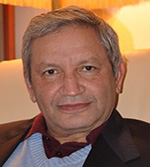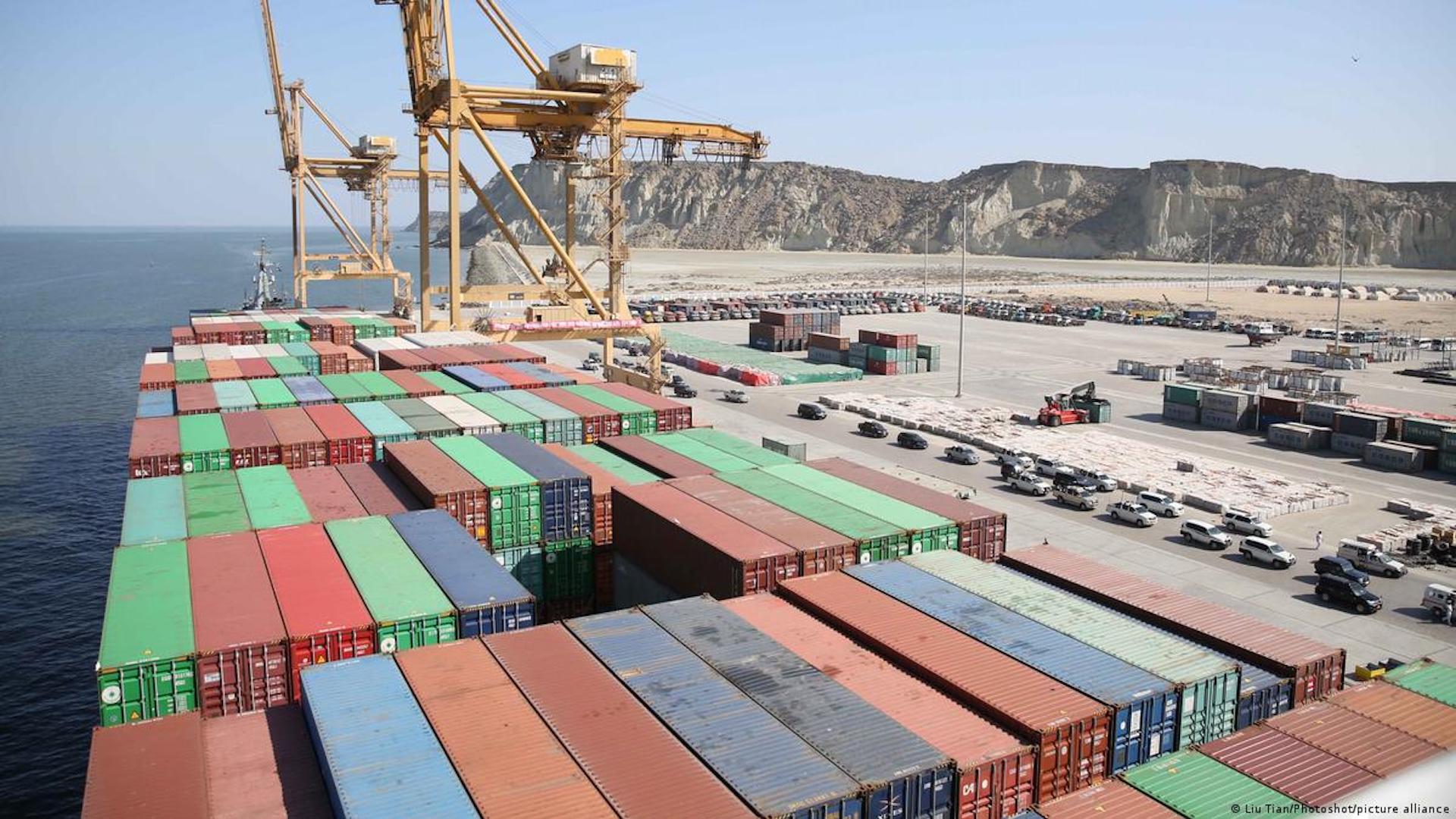This article is part of a series titled “Is there a way forward for Pakistan?” Read more about the series here.
The rise of hyper-globalization in the early 1990s marked a new era of worldwide economic interconnectedness. Pakistan made some timid attempts at reform during this period and even intensified them briefly from 1999 to 2002. However, it has regressed in the last 15 years and has become increasingly isolated. The World Bank now considers Pakistan one of the world’s most protectionist countries. Its inward-looking trade policies have prevented its integration into global and regional value chains, accounting for 70% of all international trade. As a result, Pakistan is now an outlier in the global economy.
These protectionist measures have severely impeded both the export sector and domestic industries’ growth. The government’s high import levies have reduced the profitability of exporting goods and hindered the pursuit of world-class standards for product quality and production efficiency. Consequently, Pakistan is less competitive globally, and foreign investors are less attracted.
Some countries that found it difficult to open up their economies to global competition did so selectively through bilateral or regional free trade agreements (FTA). Despite signing several free trade agreements, Pakistan has also remained staunchly protectionist. Even with the recent bilateral free trade agreement signed with Turkey, coverage of products was limited to less than 2% of each country’s tariff lines. Old preferential trade agreements with Malaysia, Indonesia, Sri Lanka, and Mauritius, entered into more than a decade ago, have yet to reach even 5% coverage of trade flows due to their rather restricted coverage.
While China-Pakistan FTA is often blamed for Pakistan’s deindustrialization, it is important to note that even after 16 years of the agreement, the range of trade flows under the FTA is only 27% for Pakistan’s imports and 8% for its exports. None of Pakistan’s highly protected sectors, such as automobiles and consumer goods, have been opened up to competition under this or any other trade agreements.
Pakistan’s record of participation in regional trade agreements is even more disappointing. Its regional trade accounts for less than 5% of its overall trade, whereas in the case of other successful developing countries, it usually exceeds 40%. Its trade under the South Asia Free Trade Agreement (SAFTA) and the Economic Coordination Organization Tariff and Trade Agreement (ECOTTA) is negligible. In general, free trade agreements are negotiated under the WTO rules, which require the reduction of duties and other restrictions on “substantially all trade,” or over 90% of existing trade. Pakistan’s FTAs are nowhere near meeting this benchmark.
Pakistan has been seeking unilateral tariff concessions through schemes such as GSP Plus to compensate for the lack of market access alternatives. However, Pakistan’s efforts to increase exports through this scheme are disappointing. Despite being granted GSP Plus status by the EU from 2014 to 2023, Pakistan’s global exports stayed at the same value of around $25 billion between 2014 to 2021. Pakistan is now trying to renew the scheme for another ten years, but the results will likely be the same.
While China-Pakistan FTA is often blamed for Pakistan’s deindustrialization, it is important to note that even after 16 years of the agreement, the range of trade flows under the FTA is only 27% for Pakistan’s imports and 8% for its exports.
By relying solely on GSP Plus schemes, Pakistan limits itself to a few products and a specific geographical area, ignoring the fastest-growing export products and regions, such as East Asia, where such schemes are unavailable. It is essential to understand that GSP Plus schemes are meant for low-income vulnerable countries that want to maintain less diversified economies.
Pakistan’s exports started stagnating after introducing two new types of levies, i.e., additional customs duties (ACDs) and regulatory duties (RDs), in June 2008. It was done on the pretext of stopping importing “luxury goods”. No consideration was given to the fact that even if we were to consider all consumer goods as luxury goods, they account for at most 7% of the total imports. Essential goods such as intermediate industrial inputs, fuels and food products account for almost 90% of our imports. In addition to raising Customs duties, sales tax on a large number of products was recently increased by over 50%. With such a high incidence of taxation on imports, no industry can compete in the export markets.
The National Security Committee (NSC), the highest policy-making body headed by the Prime Minister and including the Finance Minister and the Chief of Army Staff, while reviewing the economy, further reinforced the existing policies when they endorsed them by declaring that import substitution should be the way forward in strengthening the economy. Before making this conclusion, had there been any research, it would have been realized that import substitution policies have never worked for any country.
They only add to anti-export bias. Pakistan has been trying import substitution policies for many industrial and agricultural products, but it had no success. Its most ardent follower, the current finance minister Ishaq Dar, tried them during each of his previous tenures and every time there was a significant fall in exports. Trying the same prescription is most likely to have similar results.
Pakistan’s auto industry is an obvious example of the failure of import substitution policies. Since introducing its first five-year auto development policy in 2002, Pakistan has been focused on achieving higher localization of cars through deletion programs and increasing the volume of local production to at least 500,000, aiming to achieve economies of scale. Now we are in the fourth auto development policy and despite the consistency of policies (high protection and localization), we are far from achieving these aims, as they were in many ways contradictory. When the WTO agreement on discouraging localization entered into force in 2000, many developing countries adjusted their import substitution policies to comply with the new rules. Those who took the lead, including Thailand, Indonesia, India and China, became a part of the global value chain and are now the leading auto and auto-parts exporters. On the other hand, Pakistan has not been able to export a single car, and its auto-part exports at $15 million are not even one 0.3 per cent that of Turkey.
The only way forward for Pakistan is to embark on export-led growth by moving towards global integration. It can learn from its own experience. When Pakistan faced economic sanctions in the aftermath of its nuclear tests in May 1998, its economy was on the verge of collapse. It did not shut down but got out of the crisis through serious reforms during 2000-2002. It opened its telecom and financial sectors to global competition. It also reduced its overall tariffs on goods significantly. As a result of these reforms, the exports of goods and services tripled in absolute terms during that decade. Other economic indicators, such as GDP growth, manufacturing and employment, showed a similar surge. Global integration had a crucial role in this growth.
Covid 19 had severely impacted the economy, but instead of placing restrictions on imports, the government took the courageous step of liberalizing some tariffs. Although this was a limited exercise and only applied to industrial raw materials, it still showed immediate results, and 2021-22 exports achieved their highest level of $31.8 billion or a jump of over 25%, after a long period of stagnation.
Pakistan can learn from the successful examples of these countries, both in terms of short-term trade liberalization and longer-term reforms. One example of a country that has seen immense success through trade liberalization is Vietnam. In 1986, when it was facing a severe economic crisis, resulting in hyperinflation of over 700% and extreme scarcity of staples and consumer goods, the government started its Doi Moi policy to open up its economy and integrate into the global market. Since then, its exports have grown from $1.7 billion in 1986 to a staggering $341 billion in 2022. Vietnam’s success is a testament to the power of trade liberalization, which can help a country tap into the global demand for goods and services and expand its exports. India is another example that Pakistan can learn from. India began liberalizing its economy in the midst of a default-like situation in 1992, and since then, its exports of goods and services have grown from $22 billion to $679 billion in 2022.
Indeed, this was theoretically predicted by the brilliant American-British economist Abba Lerner almost a century ago. He postulated that import tariffs create an “anti-export bias,” as the tariffs, intended to reduce imports, reduce exports. Domestic firms selling in a protected sector are artificially more profitable than those in export markets where a government imposes an import duty to protect it from foreign competition.
Pakistan has to realize that, except for brief periods, it has been on the wrong path for the last three decades and needs a course correction. It has been using its import tariffs, its main trade policy instrument, to raise revenue and protectionism. Furthermore, it has also been using its trade policy for settling political issues and in the process, it has only hurt itself. Unless it starts integrating its economy with the rest of the world through unilateral tariff reforms, it will continue to suffer from a high trade deficit. The first step for reviving exports is removing policies that have created anti-export reforms. No other country has successfully embarked on export-led growth without integrating its economy globally and regionally. Pakistan is no exception.
In conclusion, Pakistan must recognize the importance of global integration and take steps towards unilateral tariff reforms to revive its exports. Emulating successful developing countries like ASEAN and learning from past trade liberalization policies can help the country build a sustainable future.

The writer is currently an arbitrator for World Trade Organization (WTO) trade disputes. Previously he has worked as Pakistan’s ambassador to WTO and the Food and Agriculture Organization of the United Nations (FAO) representative to the United Nations at Geneva.

